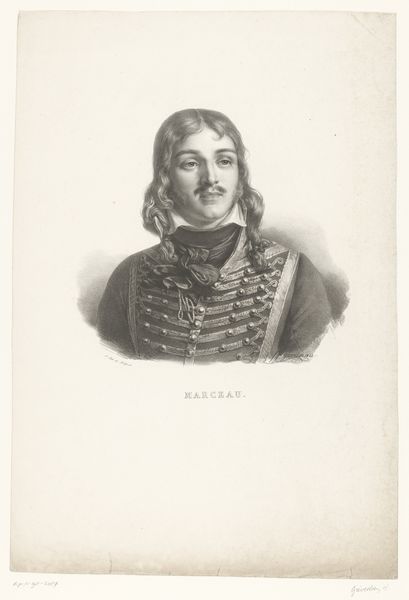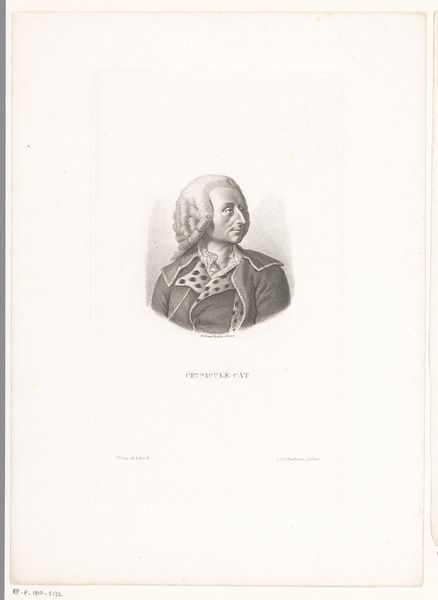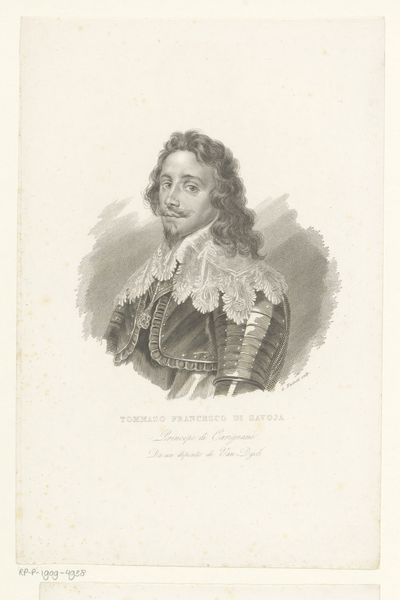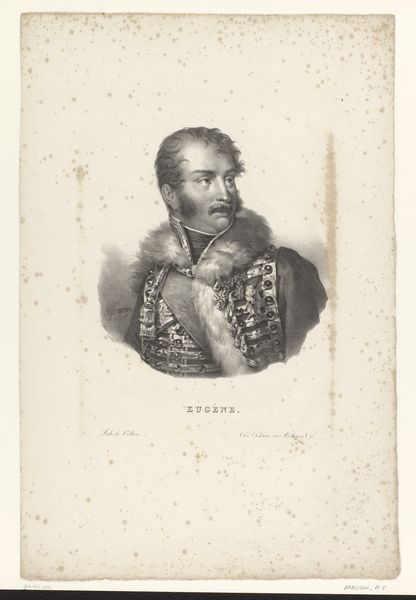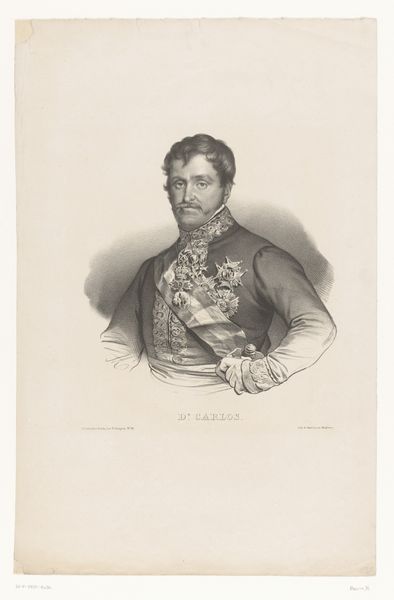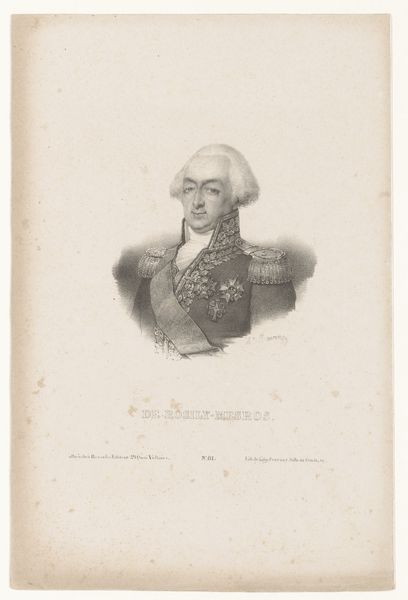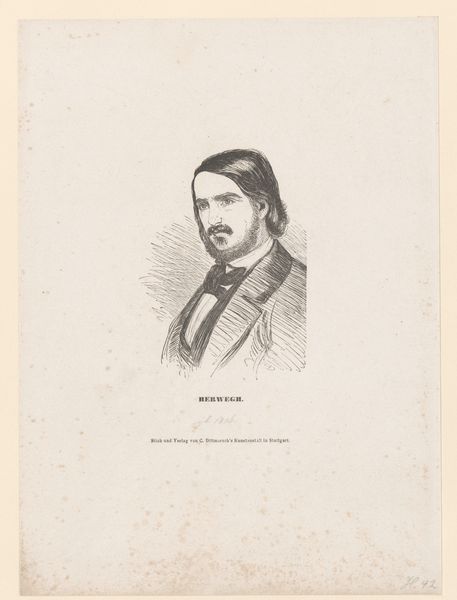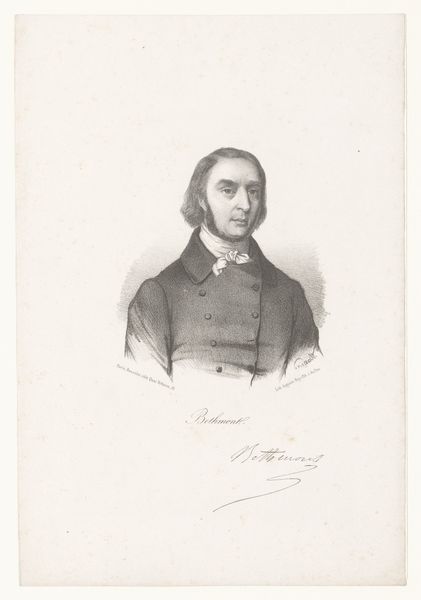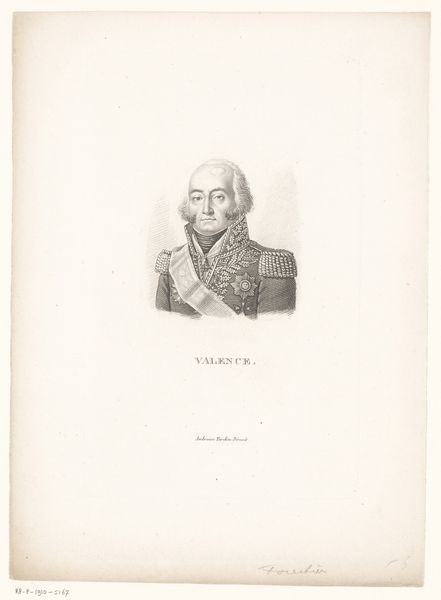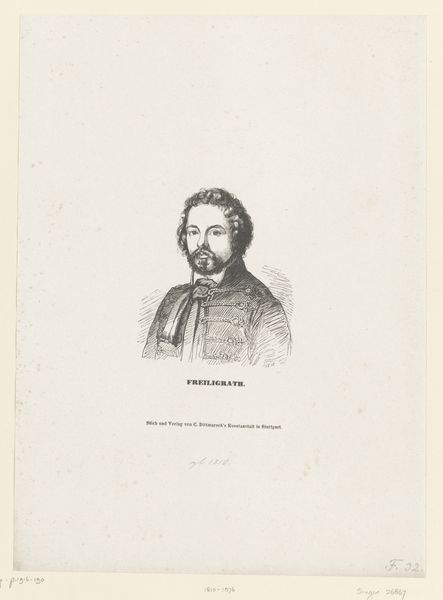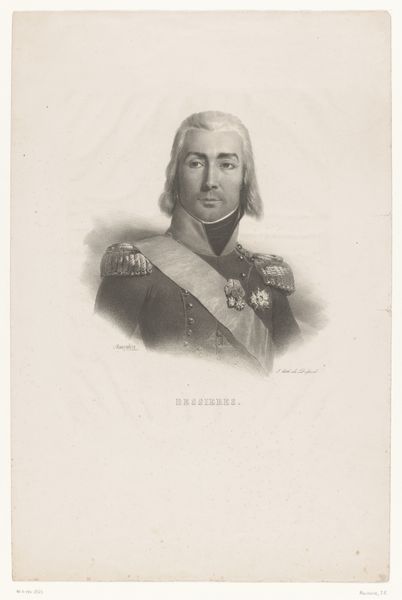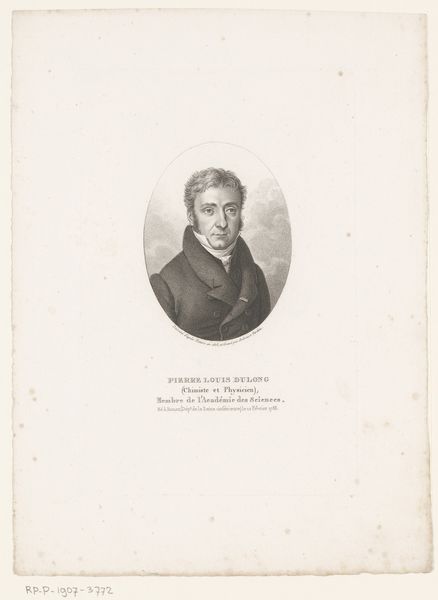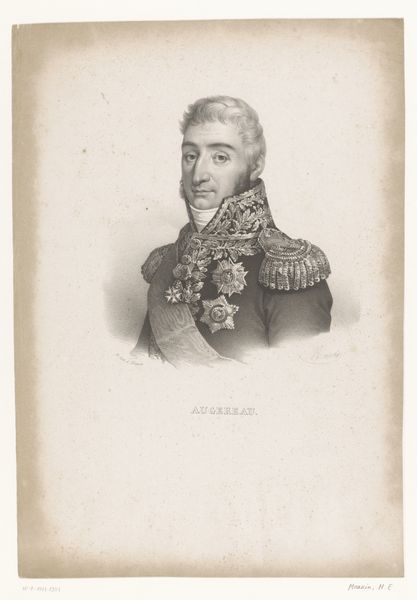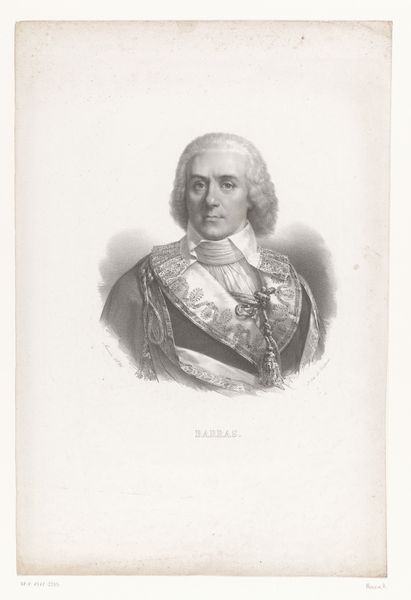
engraving
#
portrait
#
old engraving style
#
portrait reference
#
romanticism
#
history-painting
#
engraving
Dimensions: height 225 mm, width 144 mm
Copyright: Rijks Museum: Open Domain
Editor: We're looking at "François Séverin Marceau-Desgraviers," an engraving dating from 1825 to 1841 by A. Bosselman. It’s a very striking portrait. All the uniform details give it a certain gravitas. What can you tell us about this particular portrait, its place in history? Curator: This image exemplifies how political power shapes visual culture. Marceau was a celebrated general during the French Revolution. Consider the timing. While the engraving was produced decades later during the Bourbon Restoration. Why commemorate a figure of the Revolution during a period of Royal restoration? Editor: Interesting, it is almost like subtly undermining the restored monarchy by highlighting Revolutionary heroes? Curator: Precisely! These prints circulated widely and kept alive the memory of a different political order. The engraving itself, as a mass-reproducible medium, played a key role in democratizing imagery. What details stand out to you regarding Marceau’s depiction? Editor: His serious gaze and elegant, if slightly disheveled hair, it lends him a romantic and heroic air. Was this intentional? Curator: Absolutely. Romanticism, with its focus on individual emotion and heroic narratives, became a powerful visual language for shaping public opinion. This engraving utilizes that language to solidify Marceau’s place in the pantheon of revolutionary heroes, subtly influencing the present through representations of the past. It shows us how historical narratives can be intentionally shaped and disseminated through art. Editor: I didn’t consider how the visual language, medium, and timing all connect to influence political thought. Thanks! Curator: It's a perfect example of the interplay between art and social forces!
Comments
No comments
Be the first to comment and join the conversation on the ultimate creative platform.
